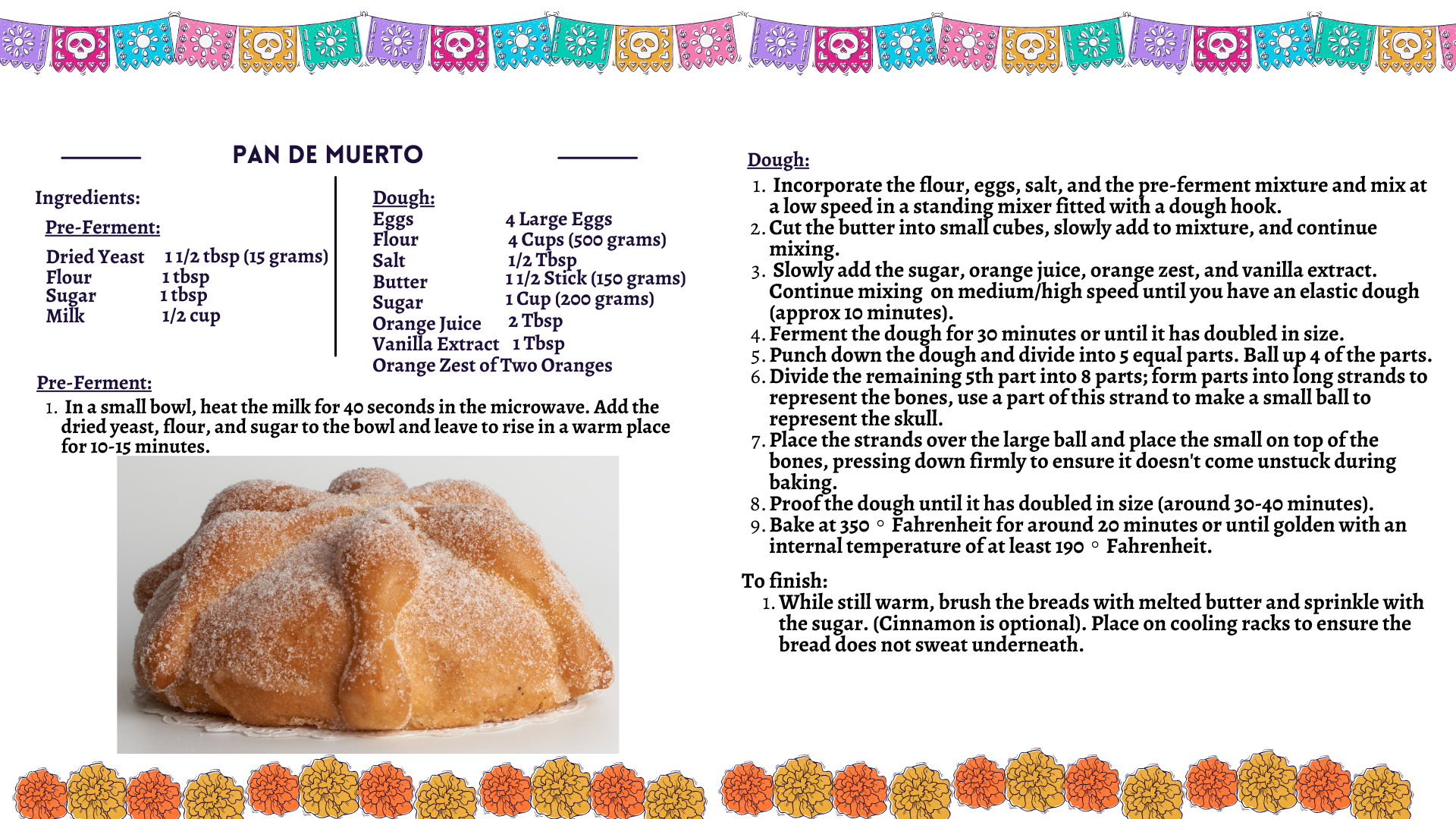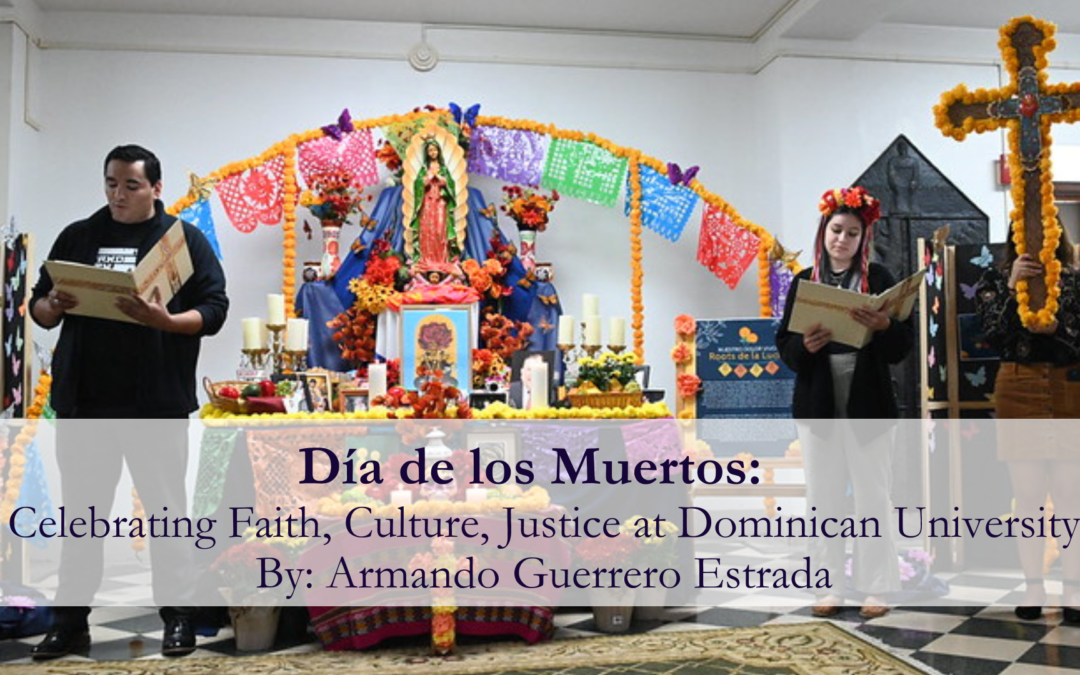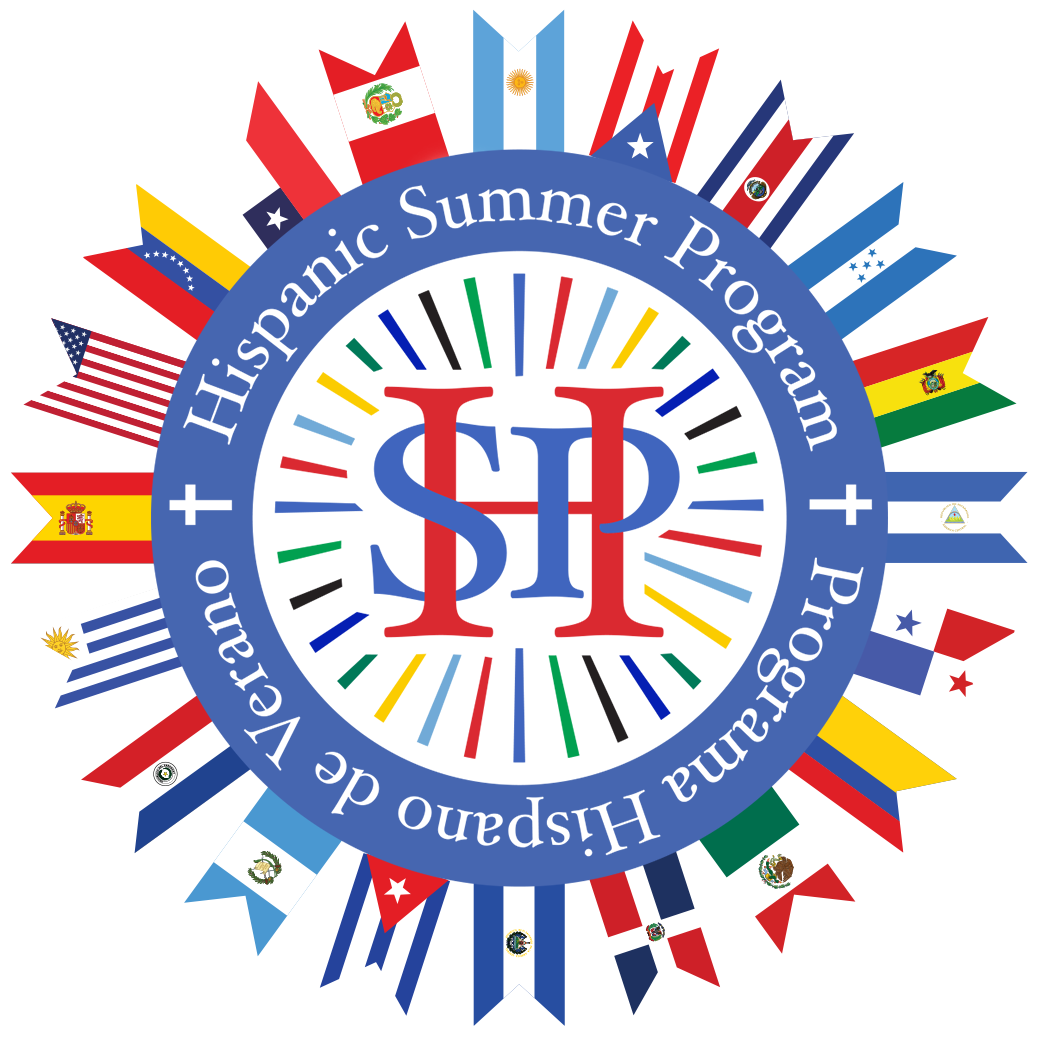Sponsored by the Dominican Sisters of Sinsinawa, Dominican University has been federally designated as a Hispanic-Serving Institution since 2011. At the undergraduate level, students of Hispanic descent make up 65.9% of the overall population. This student demographic is in stark contrast to the profile of River Forest, the affluent village in which the University is located, which makes the public celebration of el Día de los Muertos all the more meaningful for our Hispanic students, faculty, and staff.
For over a decade, the Dominican University community has observed el Día de los Muertos on November 2nd as a way of honoring the lives and legacies of our beloved ancestors. Rooted in Mexican and Mexican-American traditions, the celebration is an acknowledgement of death, commemorating our dearly departed. Yet, it is primarily a celebration of life, a life lived in the drama of human history—en lo cotidiano—and a life in the eternal kindom.
“Yet, it is primarily a celebration of life, a life lived in the drama of human history—en lo cotidiano—and a life in the eternal kindom.”
At Dominican University, the public procession and the blessing of the ofrendas merges faith, culture, and justice as it brings together traditions within U.S. Hispanic Catholicism and practices from indigenous spiritualities and worldviews. With the theme, “Somos de la Tierra: Celebrating Our Connectedness,” this year, six ofrendas have been constructed around campus, focusing on issues such as anti-indigeneity, anti-blackness, climate justice, migration, mental health, etc. These altarcitos call our attention to some of the major social issues affecting our communities. More than that, they are a call to action; the ofrendas are an explicit affirmation of indigeneity, Latinidad, and a commitment to the participation “in the creation of a more just and humane world.”
“More than that, they are a call to action; the ofrendas are an explicit affirmation of indigeneity, Latinidad, and a commitment to the participation “in the creation of a more just and humane world.”
Among the photographs, cempasúchil, candles, copal incense, and other ornate items on the ofrendas, one can find pan de muerto, a Mexican sweetbread specific to el Día de los Muertos. In many ways, this symbol perfectly kneads together faith, culture, and justice. Often left out of the conversation is the fact that bread was not only used to adorn altars and meant to represent sacrifices in early Mexico. During the visitation of the ofrendas, bread was often blessed and distributed to people facing food insecurities.
As we honor our antepasados, let us also remember the many ways in which our communities have always engaged in practices of resistance and communal care—all while bailando, festejando, celebrando.
“As we honor our antepasados, let us also remember the many ways in which our communities have always engaged in practices of resistance and communal care—all while bailando, festejando, celebrando.”
As an amateur baker and as a DACAmented theologian from Mexico, pan de muerto is one of my favorite breads to bake. It is my pleasure to share my recipe with the Hispanic Summer Program community, a community that fostered my commitment to culturally sustaining practices in higher education and theological education.


Armando Guerrero Estrada
HSP Alum
Armando Guerrero Estrada is PhD candidate in Theology and Education at Boston College. As a DACA recipient and a first-generation college student, he is passionate about fostering acompañamiento and protagonismo among college-age students. He currently serves as the inaugural Director of the PASOS Network at Dominican University. Guerrero Estrada holds a Master of Theological Studies from Vanderbilt University’s Divinity School, where he also earned graduate certificates in Latin American Studies and Religion and the Arts in Contemporary Culture, with an emphasis in U.S. Hispanic literature, and was awarded the J.D. Owen Prize in Biblical Studies and the Academic Achievement Award. He is a proud graduate of HSP ‘17 & ‘18.


